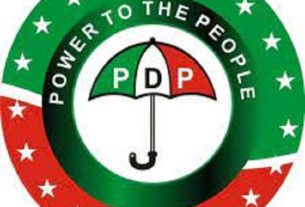India’s Prime Minister Narendra Modi (R) shakes hand with President of Nigeria Bola Ahmed Tinubu ahead of the G20 Leaders’ Summit at the Bharat Mandapam in New Delhi on September 9, 2023. (Photo by AFP)
The recent statement by the presidential spokesman, Mr. Ajuri Ngelale, that Nigeria is considering applying to join the G-20, an intergovernmental forum comprising 19 sovereign countries, the European Union (EU), and the African Union (AU), comes as a surprise to many. It is surprising in the context of whether that should be a priority of the Tinubu administration in these trying times of uncertainty. Joining the G-20 of course has its values; but with the myriad of problems the country is currently confronted with, should that be a priority now? The question is not whether the country should apply or not, another real issue is whether the country is in a political and socio-economic situation for it to be accepted by the other members of the group. There are basic criteria required for the admission of new members into the forum. Does the country meet those criteria?
According to publicly-available information, the G20 is composed of most of the world’s largest economies, composed of both industrialised and developing countries. The G20, which was founded in 1999, in response to several world economic crises, to address major issues related to the global economy, such as international financial stability, climate change mitigation, and sustainable development, accounts for about 80 percent of global gross domestic product, 75 percent of international trade, two-thirds of the global population and 60 percent of the world’s land area. Since 2008, it has convened at least once a year, with summits involving each member’s head of government or state, finance minister, or other representatives with invitations extended to other countries, international organisations, and nongovernmental organisations, some permanently.
Currently, India is the (2023) Chair of the G20 with Brazil and South Africa scheduled to assume leadership in 2024 and 2025 respectively. Nigeria is at liberty to aspire to join any global grouping of its choice, particularly if such a new association will help it achieve its goals of enhancing its development objectives as a sovereign entity or attract projects to some specific sectors of key importance to it. As the largest economy in Africa with less than expected development indicators in human development indices, per capita income and gross instability in its operating environment, Nigeria needs as many value-adding friends and relationships as possible, as it can get, particularly for a new administration that is trying to stabilise the ship of state as well as enhance the growth of the economy.
However, the key issue here is whether the country would not be putting the cart before the horse in joining many of these global bodies. First there was this issue of Nigeria reported to have been turned down in its application to join the BRICS nations, comprising Brazil, Russia, India, China and South Africa. The report had indicated that a poor country like Ethiopia was chosen in preference to Nigeria among the countries that submitted applications to join. Though Nigerian officials have denied ever applying to join the BRICS arrangement, the general negative perception of the country within the BRICS network and even among African countries should make the country think twice before embarking on any new quest to join another global grouping. There are lots of domestic economic and social issues begging for attention within the country. Even the polity seems to be unstable.
Moreover, the new President has his plate full of domestic issues requiring urgent attention, in the enhancement of his eight-point development agenda. Following from the new administration’s two bold steps of removing the fuel subsidy and the harmonisation of the foreign exchange market, the fallouts of these new policies are still reverberating in the economy and in the society at large. Real incomes and the people’s purchasing power for goods and services have fallen drastically. People are continually getting poorer and production across sectors is being stunted as many organisations now work only three or four days in the week with a consequent colossal loss in man-hours. The exchange rate has hit the roof with the naira-dollar exchange reaching almost N1,000 to the U.S. dollar, the highest ever in the country’s economic history.
There’s much work to be done in stabilising the foreign exchange market given that this particular market has a significant pass-through effect on prices and production levels in the industrial sector of the economy among others. The issue of the fuel subsidy removal is still lingering as it appears that the fuel subsidy has resurfaced with the new pricing arrangement from the Nigerian National Petroleum Company Limited. So, there are a lot of pressing issues that should attract the urgent attention of the authorities than the quest to join the G20.
Charity, they say, begins at home. Maintaining domestic economic balance is very critical in preparation for the enhancement of external balance in the governance of the country. Nigeria has a good reason to aspire to join the G20 or the BRICS group of nations as the case may be. At least, it may enhance some measure of global visibility for the country. The joining has its value addition to the country’s economic circumstances but the key question is whether that is the most critical thing to do at this point in time.
The Guardian





